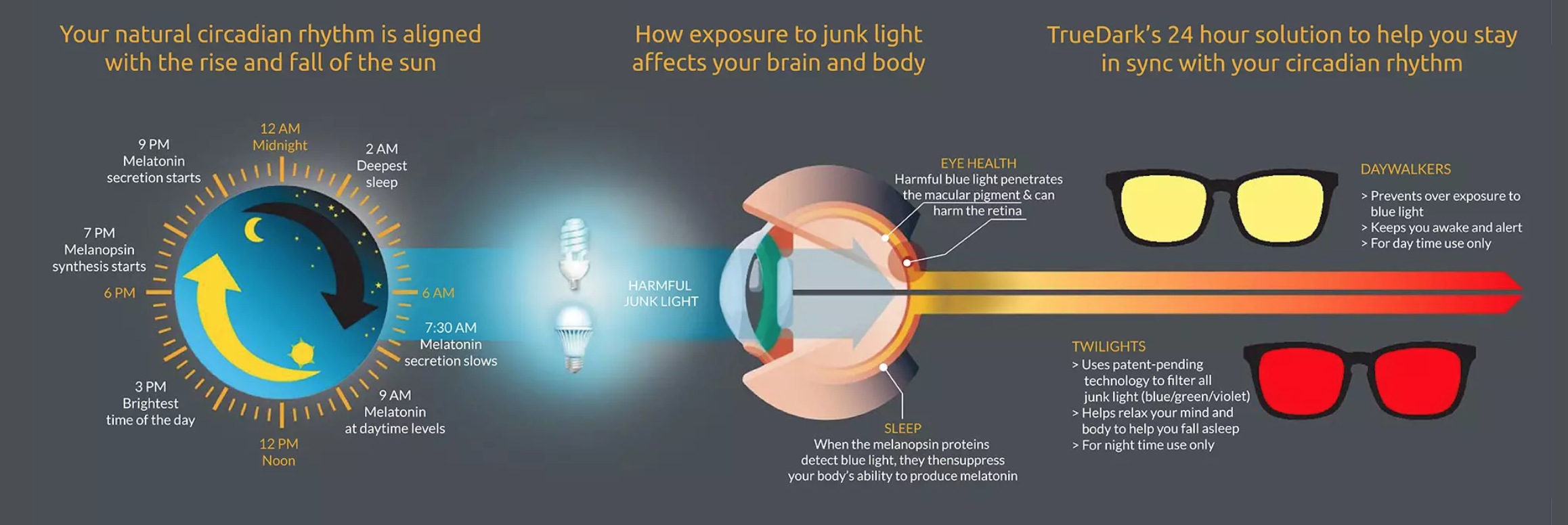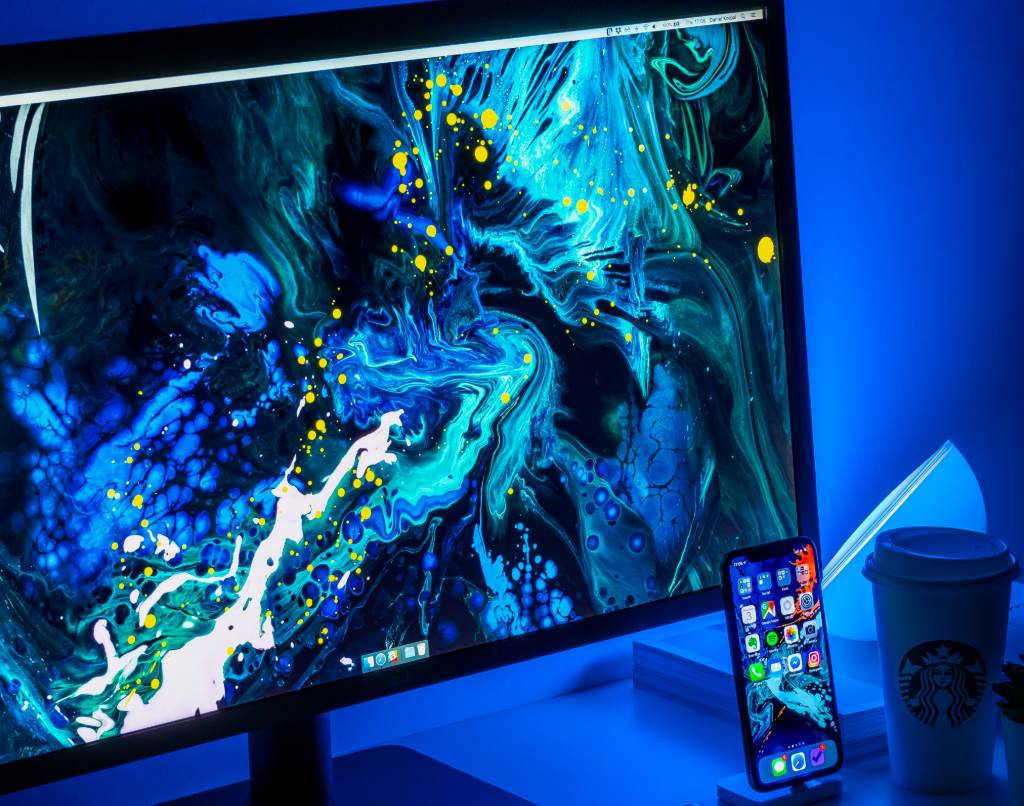How Does Blue Light Affect Sleep?
What is Blue Light
Blue light is part of the natural spectrum of visible light that comes from the sun. Blue light comes in higher doses from artificial light sources, especially LEDs, fluorescent, electronic devices (i.e. computer, smartphones, eReaders, TVs). Let’s face it, it’s all around us!
Although blue light is part of the natural light spectrum from the sun, there is a concentrated amount of blue, green, and violet wavelengths of light in these devices.
Blue light has a shorter wavelength than other colors of daylight. It produces more energy than lights with longer wavelengths, such as red light and near-infrared.
Different colors of the light spectrum affect you differently and at different times of the day.
Not all colors of light have the same effect. Blue wavelengths—which are beneficial during daylight hours because they boost attention, reaction times, and mood—seem to be the most disruptive at night.
Artificial light sources, especially LEDs, compact fluorescent (CFLs), computers, smartphones, and eReader screens are nearly unavoidable. These light sources amplify the blue, green and purple parts of the light spectrum. Your body’s sleep-wake cycle, also known at your circadian rhythm, is incredibly sensitive to this spectrum of light.

When exposed to it at the wrong time of day or night, you end up with junk light, which impacts your ability to get quality sleep. Thousands of studies show that poor sleep leads to a host of other physical and emotional issues.
The glasses are like noise cancelling headphones for your eyes, you can feel your brain relax… I have doubled my deep sleep.
Dave Asprey, Founder, Bulletproof Coffee
What is Junk Light?
Junk light is another term for excessive exposure to blue light, especially after its dark outside.
Junk light may contribute to and, or be linked to many chronic health conditions, including but not limited to:

Junk Light May Contribute To:
- Eyestrain
- Headaches
- Short-term memory loss
- Problems sleeping, due to melatonin suppression
- Stress and anxiety, due to cortisol suppression
- Symptoms of Seasonal Affective Disorder or depression
- Endocrine disruption and a poor immune system
- Female hormonal/menstrual cycle disruption
- Weight issues
- Agoraphobia (anxiety disorder)
How Do I Block Out Blue Light?
Harvard Medical School reported that in another blue light study, the University of Toronto researchers compared the melatonin levels of people wearing blue light blocking glasses to those who weren’t. The group wearing the blue light blocking glasses were exposed to bright indoor lighting while the second group did not wear glasses and were exposed only to dim light.
The hormone levels of both groups were about the same and this helped the researchers conclude that blue light strongly affects melatonin levels. The Harvard Medical School report suggested that people who work night shifts could benefit from blue-blocking glasses.
Safeguard Yourself from Blue Light at Night
- Switch to dim red lights for night lights. Red light has the least power to shift circadian rhythm and suppress melatonin.
- Turn off your electronic devices and bright screens two to three hours before sleep.
- Use blue-blocking glasses in the evening or during excessive screen time.
- Get plenty of natural sunlight during the day when possible. This helps regulate your natural biorhythms.

Reduce Digital Eye Strain & Keep Sleep Cycles Normal
TrueDark®: Recommended Brand of Blue-Light Blocking Glasses
TrueDark® is a brand of Blue-Light Blocking Glasses created by Biohacked and co-founded by Dave Asprey. TrueDark® helps restore your natural circadian rhythm
TrueDark® says to think of their technology as noise-canceling headphones for your eyes. When our sleep is disturbed we are more prone to the harmful effects of stress. That is the main reason that I have included Blue-Light Blocking Glasses on my website targeted at stress relief through natural technologies.
TrueDark®: Recommended Brand of Blue-Light Blocking Glasses.
TrueDark® glasses come in several styles. Most are designed to be used straight out of their box. Simply begin wearing anytime and especially within about a half an hour before you want to go to sleep.
TrueDark® glasses use patent-pending technology to help people protect their eyes and improve their quality of life. Daylight and Twilight glasses maximize their effectiveness based on the times you need them most.
Another great brand is Gunnar, which is what I use on a daily basis. When I’m on the computer for multiple hours I use my protective lens to help minimize eye strain and potential damage.




I hope you found this information on protective eyewear helpful. I spend considerable time researching the best products and present you with my research. The product links are affiliate links which means I earn a small commission should you purchase through my link. This enables me to continue vetting products and sharing my findings with you.


